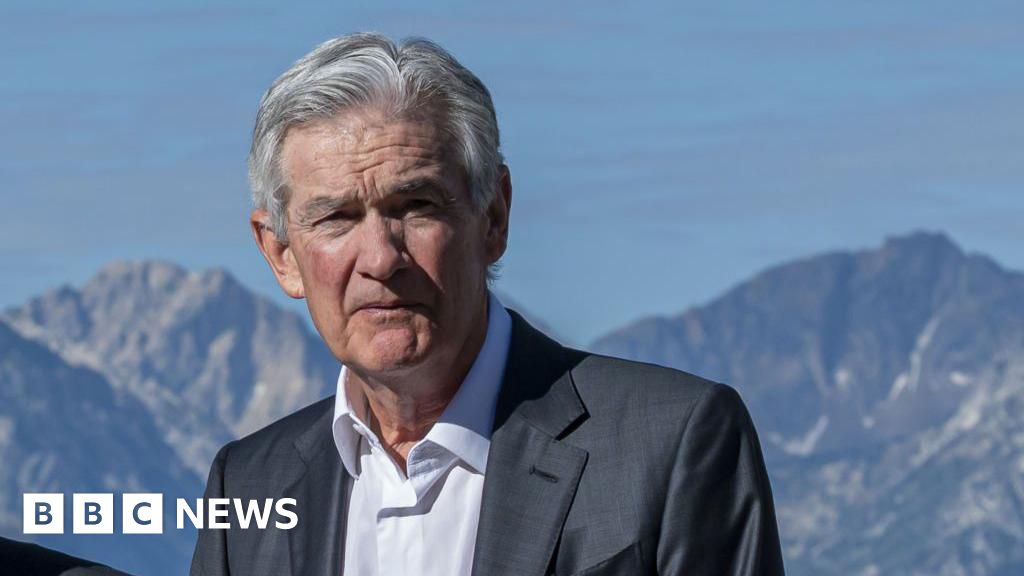14 minutes ago
By Faisal Islam & Daniel Thomas, BBC News
Countries including the UK and the US are "seeing some persistence” in inflation that might mean interest rates have to stay “higher for even longer”, the International Monetary Fund (IMF) has warned.
The body also said elections across the world had increased "uncertainty" over economic growth amid concerns over "significant swings" in policy from new governments.
The IMF maintained its forecast that the world economy will grow by 3.2% in 2024, but pointed towards slightly stronger growth in 2025 at 3.3%.
It also confirmed an upgrade to the UK's outlook for 2024 to 0.7%, but kept its forecast for 2025 unchanged.
It comes ahead of fresh UK inflation figures on Wednesday, which could help to determine whether the Bank of England cuts interest rates next month.
UK inflation - which measures the pace of price rises - has fallen sharply since last year to 2%, in line with the Bank of England's official target. However, price rises in the important services sector remain high.
The Bank has repeatedly put up interest rates to try to control inflation, creating pain for borrowers, but it is expected to cut them at some point this summer.
IMF chief economist Pierre Olivier Gourinchas said that the UK was “in some ways similar” to the US in terms of sticky inflation.
In its latest outlook update, the IMF said: "The momentum on global disinflation is slowing, signalling bumps along the path.
"The risk of elevated inflation has raised the prospects of higher-for-even-longer interest rates, which in turn increases external, fiscal, and financial risks."
However, on markets for UK government debt, the effective interest rate on a two-year gilt fell below 4% for the first time this year. This suggests increasing optimism that rates will be coming down soon.
This is likely to continue the brewing mortgage price war, with fixed rates coming down even before the Bank makes its next rates decision on 1 August.
While the IMF raised its global growth outlook for next year slightly, its forecast for US growth in 2024 was downgraded to 2.6%, below the 2.7% forecast in April, due to a "slower-than-expected start to the year".
The IMF said political uncertainty linked to elections around the world could affect its projections.
It said it was “too early” to assess the economic policies of the new Labour government, but noted that some of Sir Kier Starmer's plans were in keeping with the IMF’s detailed advice in its annual review of the British economy.
Separately it said that the “direction of travel” on US borrowing was of concern, as America's debts remained at a record level.
Higher public borrowing tends to drive up government borrowing costs which can have a knock-on effect on mortgage rates and other consumer loans.
"The potential for significant swings in economic policy as a result of elections this year, with negative spill-overs to the rest of the world, has increased the uncertainty around the baseline," the IMF said.
It added that a rise in trade barriers such as export restrictions and tariffs also posed a risk to the global economy.
More than 3,000 such measures were brought in last year, up from an already-high level of 1,000 in 2019.
The IMF said these policies could trigger retaliation and a "costly race to the bottom".
"We see an explosion in the number of trade restrictive measures," said Mr Gourinchas.
"One concern we have is that going forward, this will weigh down on global activity."



 1 month ago
61
1 month ago
61









